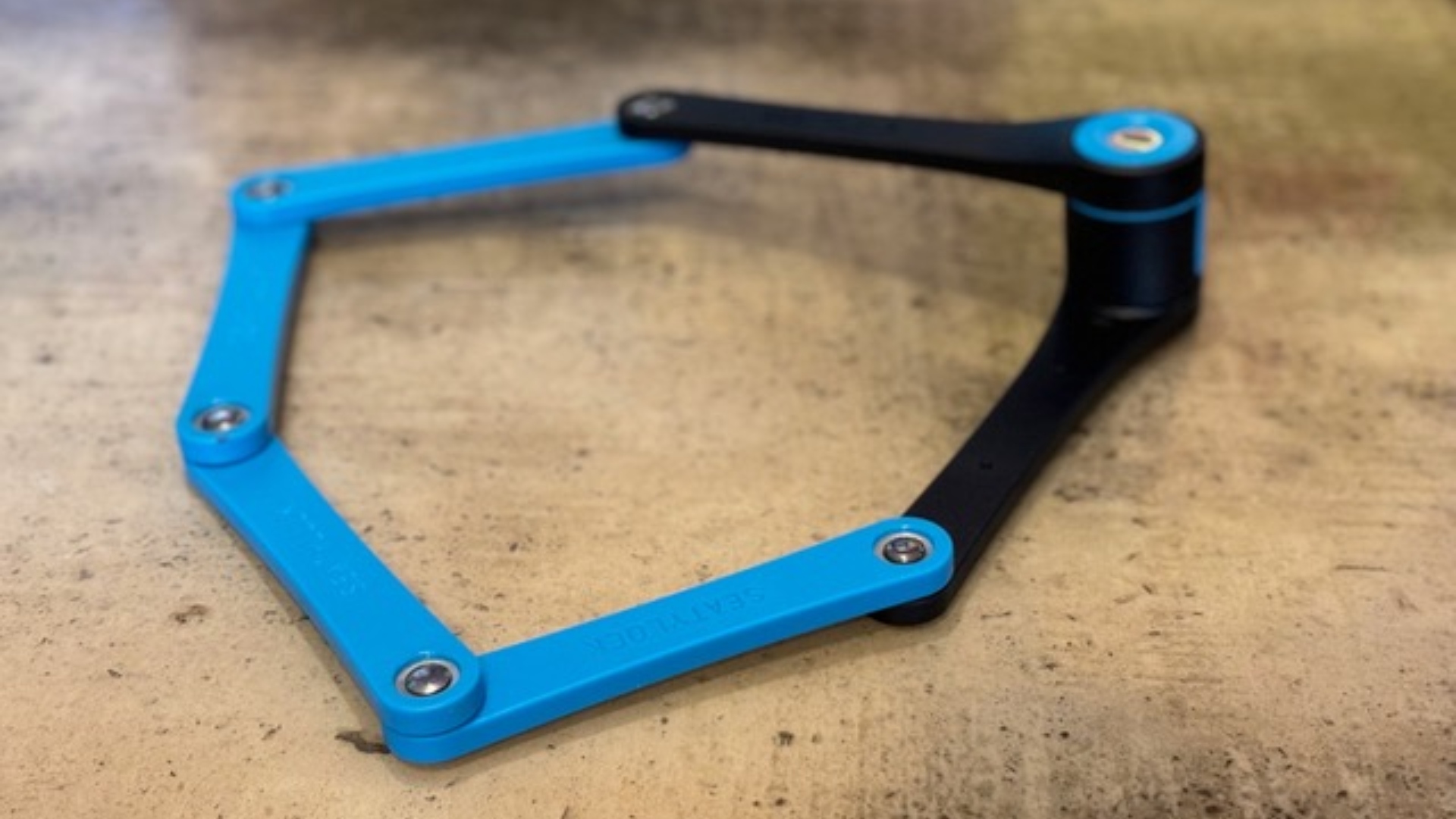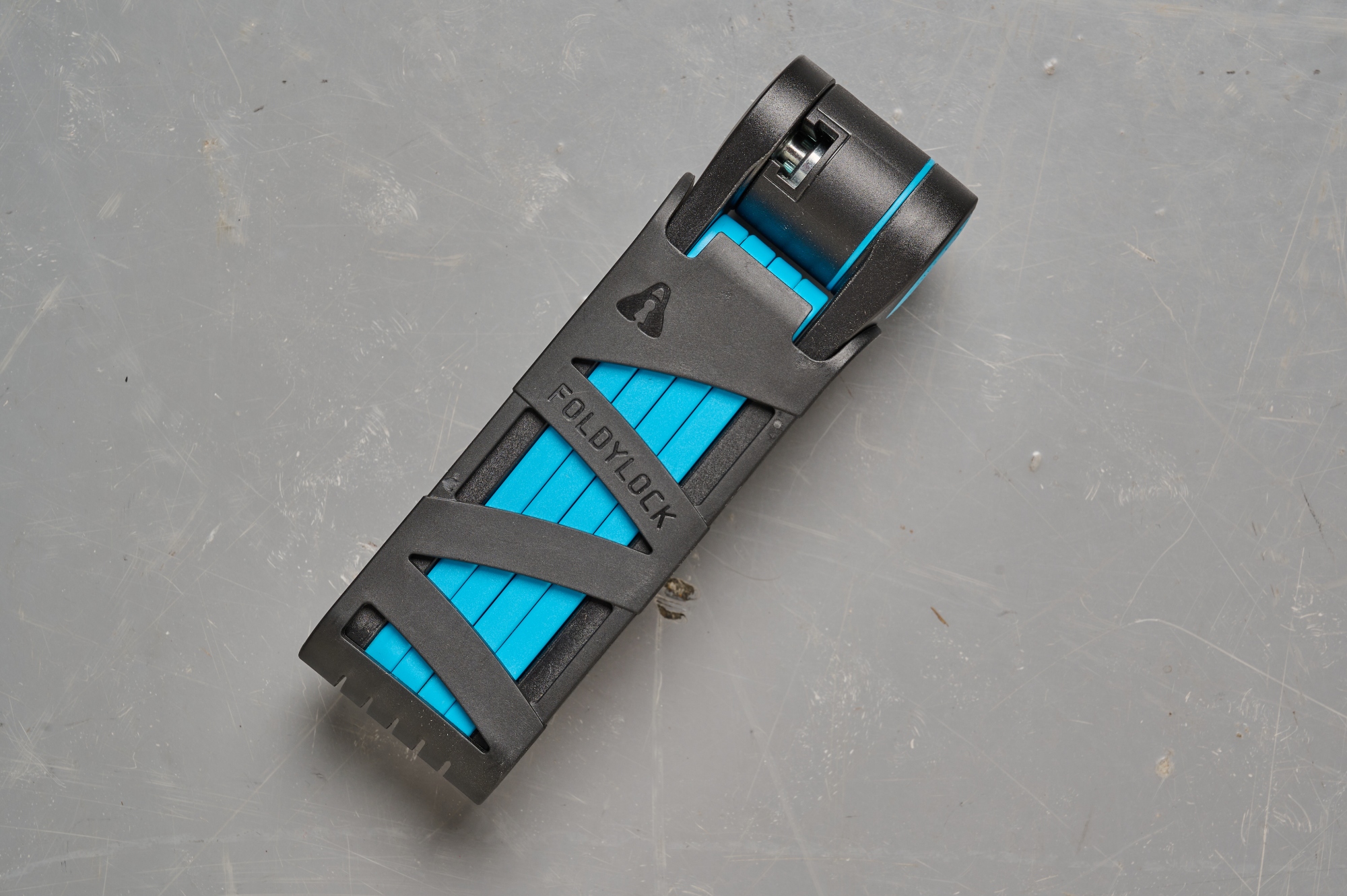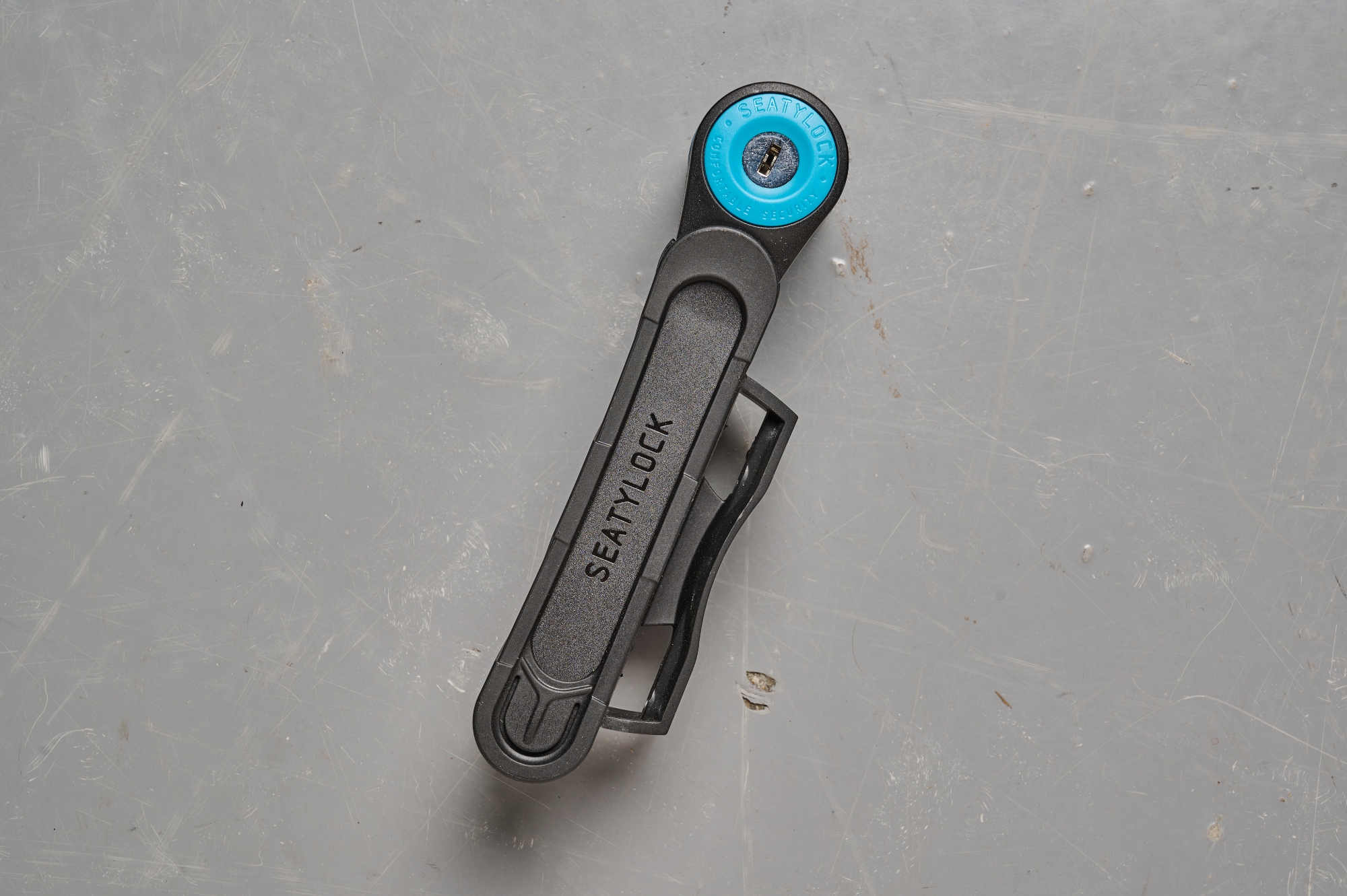Small but perfectly formed? Seatylock Foldylock Compact review
An admirable size-to-strength ratio makes this a compelling offering for weight-conscious commuters

If portability is your priority, the Foldylock Compact could be a winner. It folds down into an impressively small unit that’s easy to carry both on the bike or in a bag. In use, it offers a good amount of flexibility and the quality of construction helps too. The smooth rivets strike the right balance of movement so it doesn’t flop about in your hands as you lock it up. While the Silver rating won’t offer enough security for some, the lock’s size and convenient nature should make it appealing to commuters who prefer to travel light.
-
+
Light and compact when folded away
-
+
Impressive size-to-strength ratio
-
-
Silver rating might not be high enough for some
-
-
Smaller internal circumference than larger locks
You can trust Cycling Weekly.
While Seatylock is perhaps less well known than other premium brands who make some of the best bike locks it does offer a comprehensive range that includes chains, u-locks and a number of folding options.
The folding models include the Elite, Forever and Classic, all of which are ‘full-size’ locks. Then there are the Mini and the Compact. As their names suggest, they aim to balance bike security with portability. Here, I’m taking a closer look at the Compact, which we rate as one of the best lightweight bike locks.
Construction
The Foldylock Compact comprises six steel bars, which are joined by a number of stainless steel rivets, which allow the bars to pivot. Each is covered in plastic to provide additional protection and durability. The overall circumference of the Compact when unfolded is 85cm.
Any folding lock has two supposed advantages over a more traditional U-lock: it offers more flexibility when locking your bike because it doesn’t have such a rigid structure and because it can be folded down it’s far more portable.

Certainly, the Compact folds down into a package that accurately reflects its name. It measures 7.45” / 18.9cm long by 2.35” / 6 cm wide and fits into a plastic carry case that can be fitted to a bike’s bottle cage mounts. On my scales, it weighed just over 1kg / 2.2lbs, which means it can be comfortably carried in a backpack or bike bag as well.
The knock-on folding locks is that their USP also makes them more vulnerable to bike thieves; in essence, the rivets are an inherent weakness that can be exploited by thieves. To guard against this the Compact is said to have ‘patented ultra-protected rivets’, which Seatylock says have been “tested and protected against sawing and cutting attacks”.
Foldylock states that the locking cylinder is an ‘automotive’ standard. While I didn't have the lock for long enough to see how the locking mechanism held up it does state that all of the lock's metal components are resistant to rust. There's no dust cover here but there is a three-year warranty in case of any issues.
The latest race content, interviews, features, reviews and expert buying guides, direct to your inbox!
In use
The lock’s weight, or lack of it, is noticeable. When packed into the case it makes for a neat and tidy unit that I found easy to pop into a backpack. When I secured it to my bike’s frame it was equally forgettable. The carrying case was secured easily using the bottle bosses and when cycling it stayed in place and was silent; a rattling lock can be rather irritating if your journey is more than a mile so I was pleased to find that the Compact behaved.

The smaller size made the Compact easy to use too. The rivets were smooth in action but not so much that they rendered the structure too slack when unfolded. I’ve used other larger folding locks and I found them to be a tad tricky to manage when it comes time to lock and unlock your bike. The downside here however is that you have less internal space to work with; the internal circumference of the lock is approximately 33” or 85cms. That said I managed to lock my bike to a variety of objects without any real issue, although I’d probably add a cable lock to work in conjunction with the Compact so I could secure both wheels.
The object of this test is to see how the Foldlylock performed in use, in regards to transporting the lock and locking and unlocking a bike. I didn’t attempt to break the lock in anyway so I can’t attest to the brand’s claims. In terms of security, it holds a Sold Secure Silver rating, which is fairly typical for folding locks. And it’s one of the smallest and lightest Silver-rated locks on the market, offering an impressive size-to-strength ratio.
Value
At $90 / £71 the Foldylock Compact can be described as reasonably priced. The Compact is a similar price to the Abus compact folder, the Bordo 5700. OnGuard K9 folding lock is cheaper but offers a lower Sold Secure rating of Bronze.
Luke Friend has worked as a writer, editor and copywriter for over twenty five years. Across books, magazines and websites, he's covered a broad range of topics for a range of clients including Major League Baseball, Golf Digest, the National Trust and the NHS. He has an MA in Professional Writing from Falmouth University and is a qualified bicycle mechanic. He has been a cycling enthusiast from an early age, partly due to watching the Tour de France on TV. He's a keen follower of bike racing to this day as well as a regular road and gravel rider.